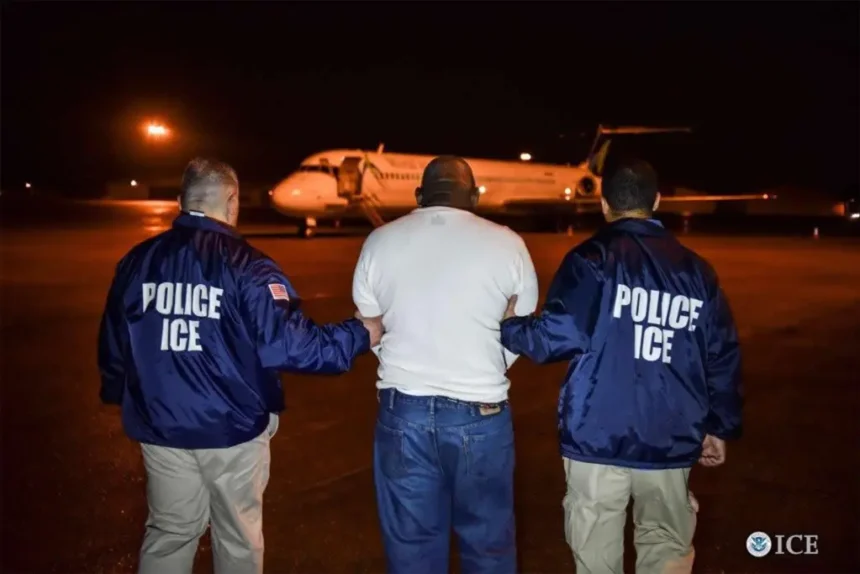Florida Governor Ron DeSantis has issued a stern warning to local officials who refuse to cooperate with federal immigration authorities, threatening potential suspension from their positions. The Republican governor’s forceful statements on Thursday have escalated tensions between the state government and various municipalities regarding immigration law enforcement. Currently, a significant number of Florida’s local governments have already entered into formal agreements with the state to work alongside federal authorities, enabling their local law enforcement to take action against undocumented immigrants.
In a notable development, the Fort Myers city council stood firm in their decision to reject this controversial agreement, which would have required their local law enforcement officers to undergo specialized training conducted by Immigration and Customs Enforcement (ICE). This training program was designed to equip officers with the authority to interrogate and detain individuals they suspect of being undocumented immigrants within their jurisdiction.
The council’s resistance stemmed from deep-seated concerns voiced by several members who worried about potential negative consequences. They specifically highlighted risks of racial profiling and the possibility of eroding the carefully built trust between law enforcement and local communities. This decision promptly triggered a sharp response from state officials. In the aftermath of the council’s vote, Florida Attorney General James Uthmeier dispatched an official letter suggesting that Fort Myers’ stance might be in violation of state legislation that explicitly prohibits sanctuary cities – municipalities that choose to limit their cooperation with federal immigration enforcement efforts.
“Sanctuary policies are neither tolerated nor legal in Florida,” Uthmeier wrote, insisting that “immediate corrective measures are required,” according to CBS Miami.
This confrontational approach aligns with Governor DeSantis’s previous actions against local officials who have opposed his political agenda. CBS Miami highlighted a notable precedent where DeSantis removed State Attorney Monique Worrell, a Democratic elected official from Orlando, citing allegations of excessive leniency in her prosecution decisions. However, Worrell’s subsequent re-election allowed her to reclaim her position, demonstrating the complex dynamics between state and local governance.
The Fort Myers situation represents just one aspect of DeSantis’s broader initiative to strengthen immigration law enforcement throughout Florida. In a significant move last month, his administration unveiled expanded agreements that substantially increase local law enforcement agencies’ powers in dealing with undocumented immigration. These enhanced partnerships establish direct channels of cooperation with ICE, streamlining the process of arresting and transferring undocumented individuals to federal custody.
These developments reflect the growing tension between state and local authorities over immigration enforcement policies, with DeSantis positioning himself as a hardline enforcer of immigration laws. The governor’s approach has sparked intense debate about the appropriate balance between state authority and local autonomy, particularly in matters of law enforcement and immigration policy. As this situation continues to evolve, it remains to be seen how other municipalities will respond to the increasing pressure from state authorities to participate in the State of Florida’s efforts to align with the Trump administration’s hard stance on immigration.







